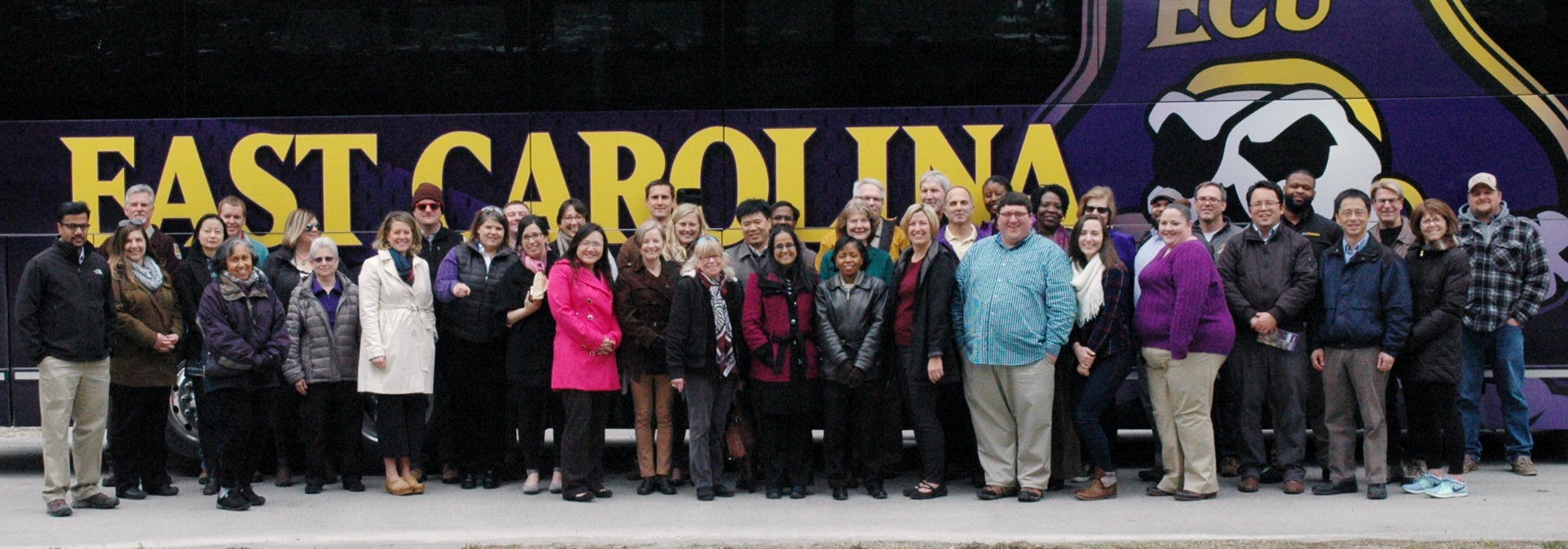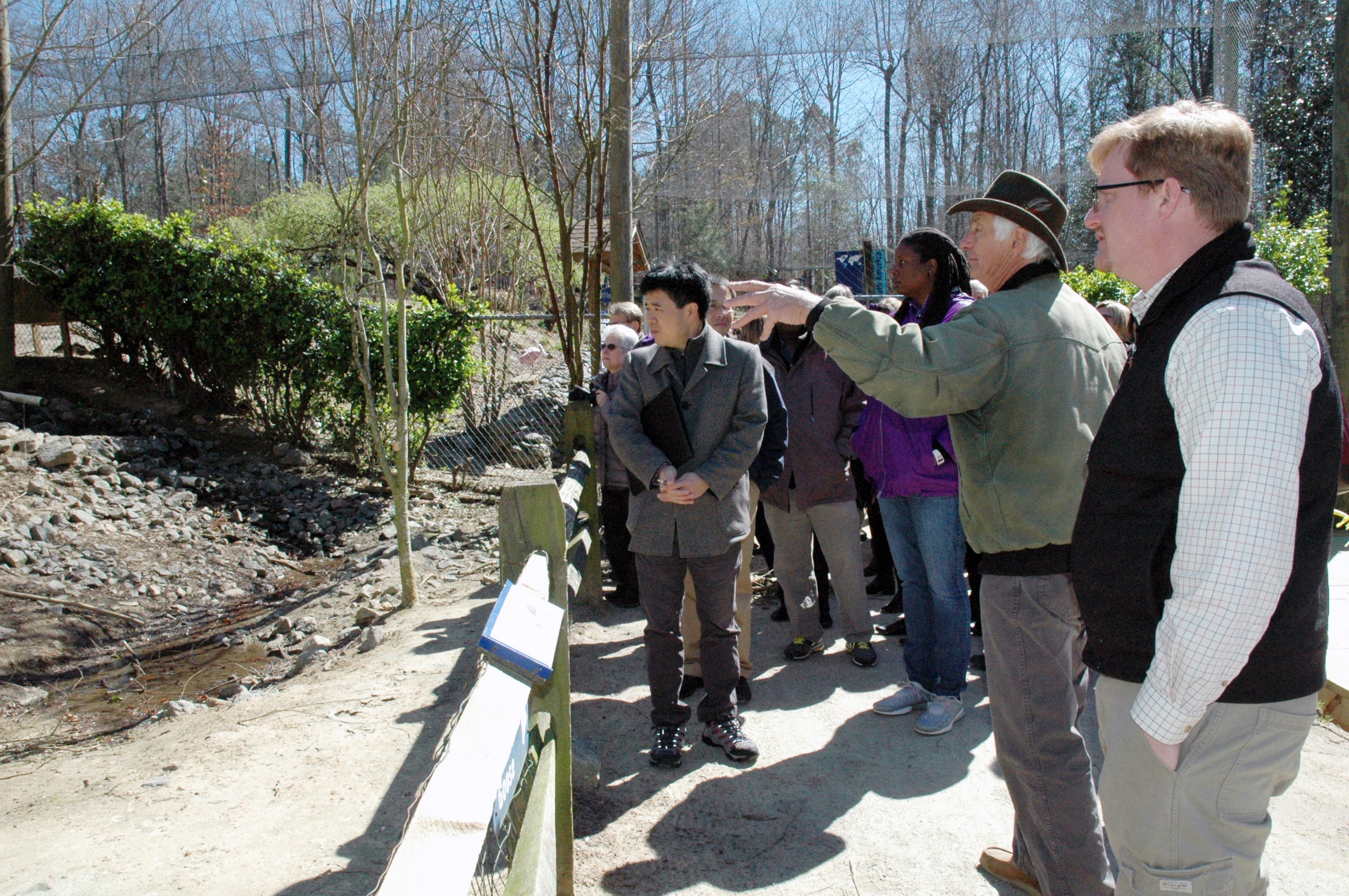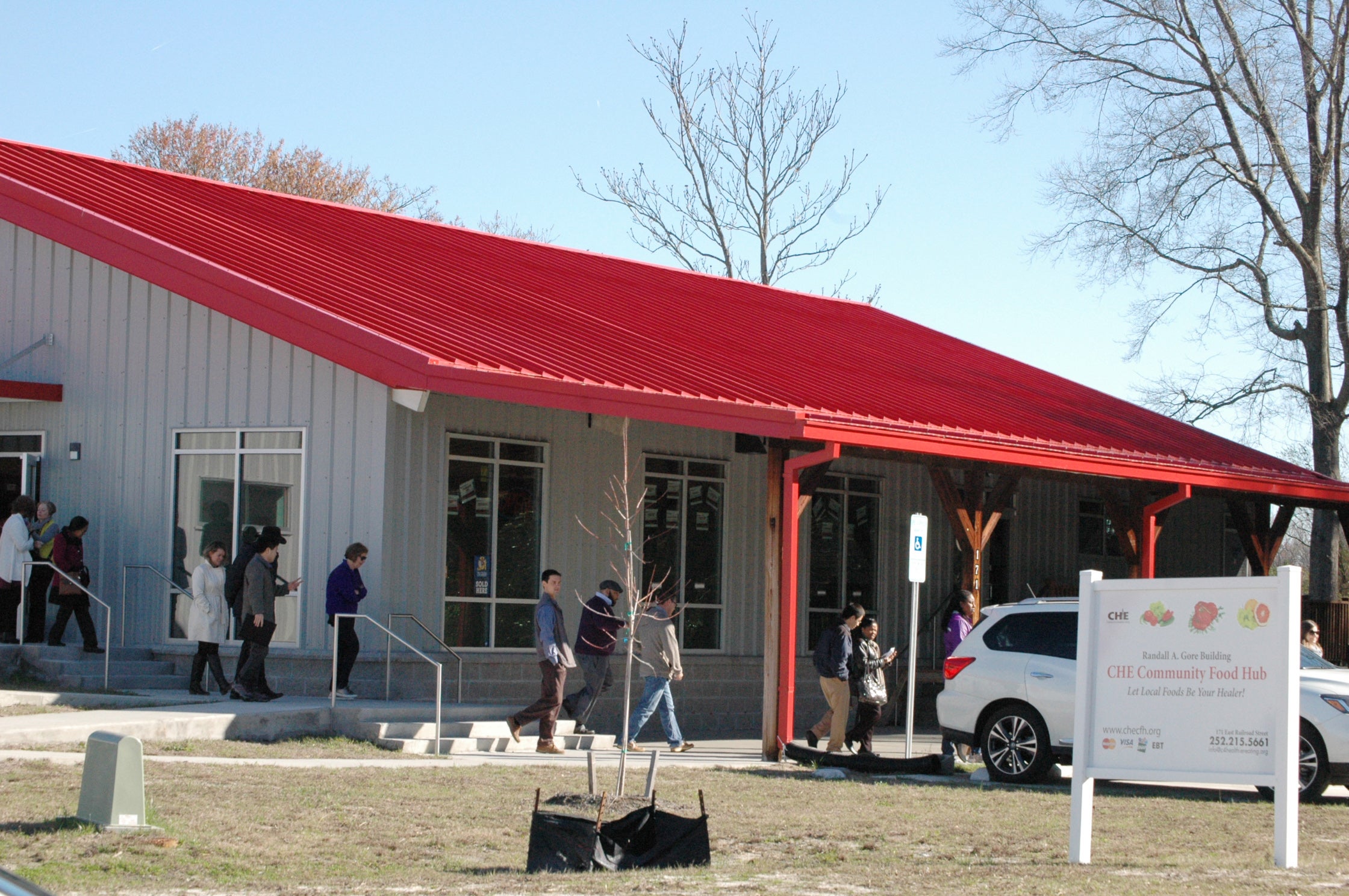Bus tour focuses on research
East Carolina University faculty and staff returned home March 6 after traveling more than 400 miles across 14 North Carolina counties as part of the inaugural Purple and Golden Bus Tour.
The tour, hosted by the Division of Research, Economic Development and Engagement, took 42 participants to 13 stops over two days.

Participants of East Carolina University’s Purple and Golden Bus Tour visited 14 North Carolina counties over two days, including stops at the Lake Mattamuskeet National Wildlife Refuge, Sylvan Heights Bird Park, Elizabeth City State University and the UNC Coastal Studies Institute. (Photos by Paige Middleton/REDE Visual Arts Specialist)
“The tour was designed to introduce ECU faculty with identified research plans to the culture, geography, heritage, economy and assets of eastern North Carolina,” said Jay Golden, vice chancellor for research, economic development and engagement. “This program is designed to encourage partnerships and research that can have long-
term benefits for the people and communities of eastern North Carolina. Already, the faculty participants have started to create new projects and collaborations – and we expect that will continue.”
The tour ties into ECU’s Rural Prosperity Initiative by creating connections between researchers and regional partners that can affect health, economic development and health disparities in eastern North Carolina. Additionally, participants met with five university-wide research cluster co-directors who were members of the tour.

Mike Lubbock (center), executive director of the Sylvan Heights Bird Park, shares research opportunities with ECU faculty members.
Faculty members connected with experts and representatives from various agencies, including Sylvan Heights Bird Park, the Roanoke Cashie River Center, Elizabeth City State University and the UNC Coastal Studies Institute. Participants also interacted with town officials from Bethel, Princeville, Windsor and Kinston during the tour.
First-day tour stops included the CHE Community Food Hub in Bethel; a windshield tour of Edgecombe, Halifax, Northampton, Hertford, Chowan, Perquimans and Pasquotank counties; the Sylvan Heights Bird Park in Scotland Neck; the Roanoke Cashie River Center in Windsor; Elizabeth City State University; and the ECU School of Dental Medicine’s Elizabeth City Community Service Learning Center. Second-day tour stops included the UNC Coastal Studies Institute; the Lake Mattamuskeet National Wildlife Refuge; the Kinston Arts District; and windshield tours of Beaufort, Craven and Lenoir counties.
Tour impact
ECU professor and Theatre for Youth/Theatre Education Coordinator Patricia Clark said the tour provided “valuable connections” that will help her align her research with areas of need in eastern North Carolina.

ECU faculty members visited the Coalition for Healthier Eating Food Hub in Bethel, N.C., as part of the Purple and Golden Bus Tour. The CHE Food Hub is a nonprofit organization that works to connect local, sustainable growers with consumers.
“I had the opportunity to discuss STEAM (science, technology, engineering, arts and math) education ideas for K-2 learning, including incorporating theatre and creative dramatics techniques to teach science,” Clark said. “This idea developed over a lunch conversation at Lake Mattamuskeet with Hyde and Tyrrell County Extension Director Natalie Wayne. She expressed a need for students to have hands-on science education activities.
“We also talked about offering teacher development programs during the regular school year,” she said. “I’m looking forward to seeing how other researchers and myself might work together to combine theatre arts and the sciences in early learning.”
Dan Dickerson, associate professor and STEAM cluster co-director, said the trip provided an opportunity to shape the goals of the research cluster he oversees.
“The bus tour certainly helped me continue to broaden my network throughout the east by providing an opportunity to listen to, speak with and problem solve with locals who are actively pursuing sustained rural prosperity for their communities,” Dickerson said. “I also learned a lot during conversations from my ECU colleagues while on the bus. Shawn Moore, STEM Center Director and STEAM cluster co-director, and I were able to gather significant input regarding cluster direction and opportunities and are appreciative of their insights.”
REDE plans to host additional bus tours, providing future opportunities for unique collaborations between researchers.
-by Matt Smith, University Communications